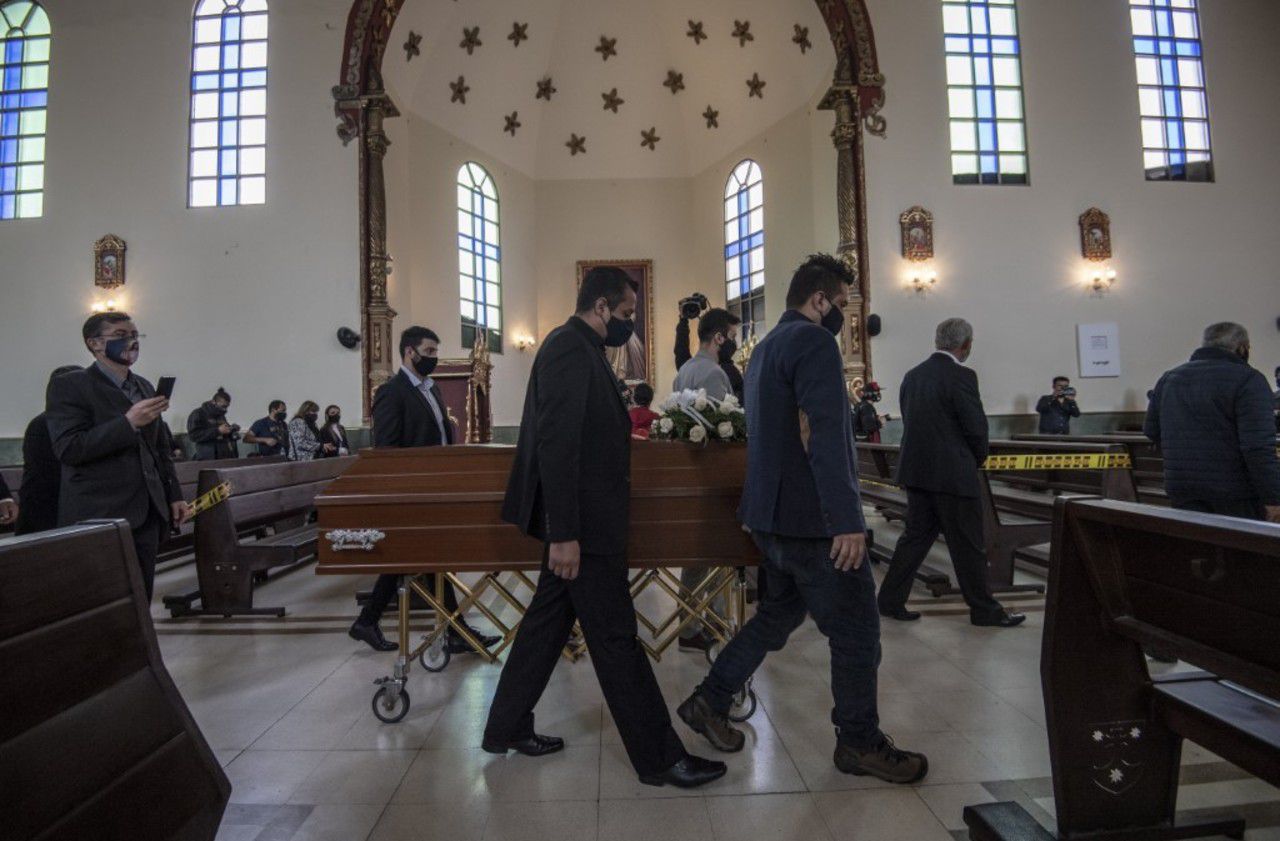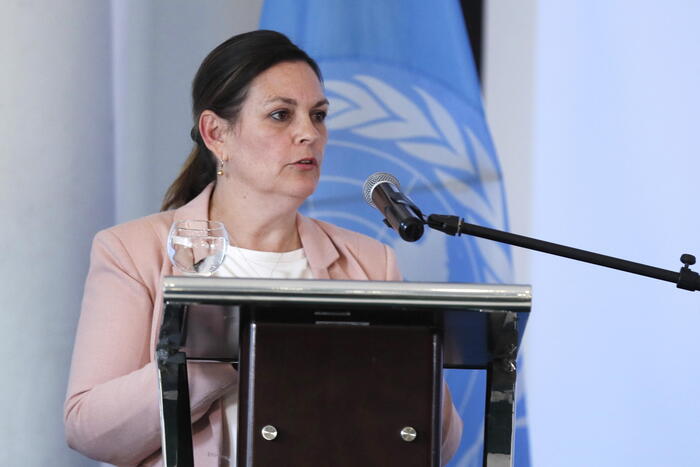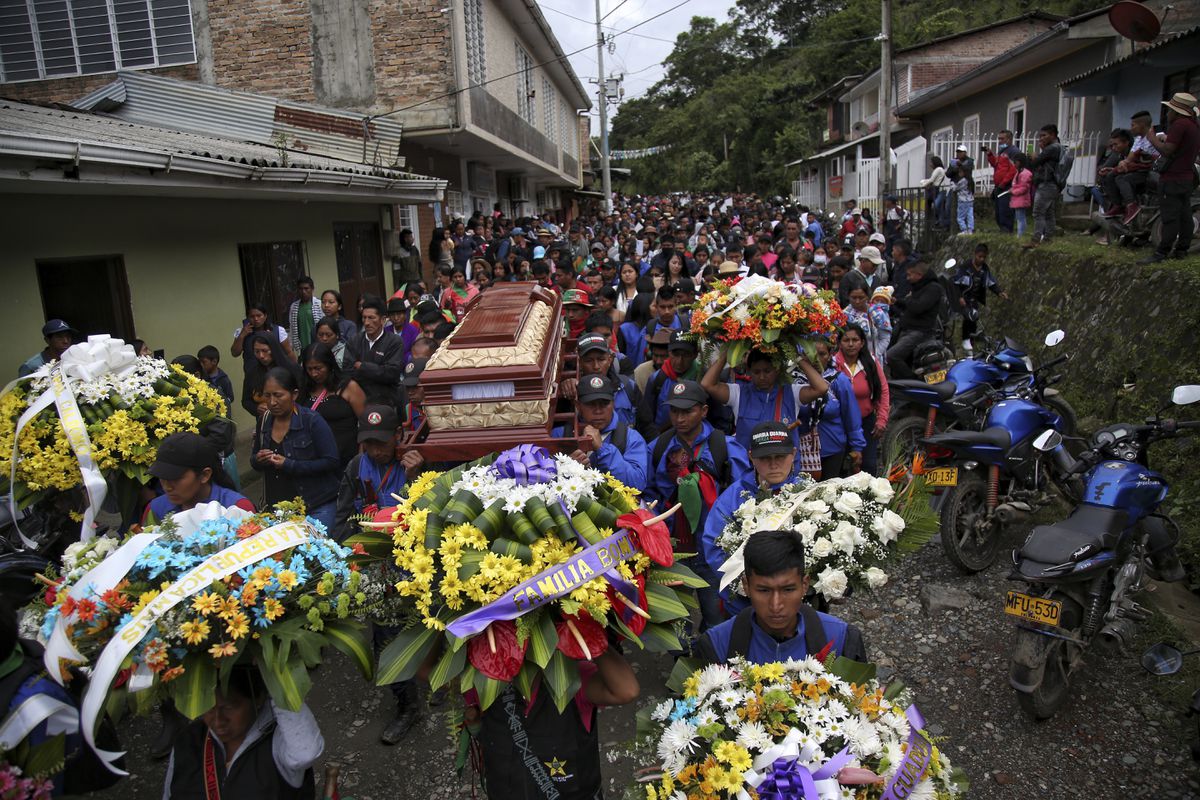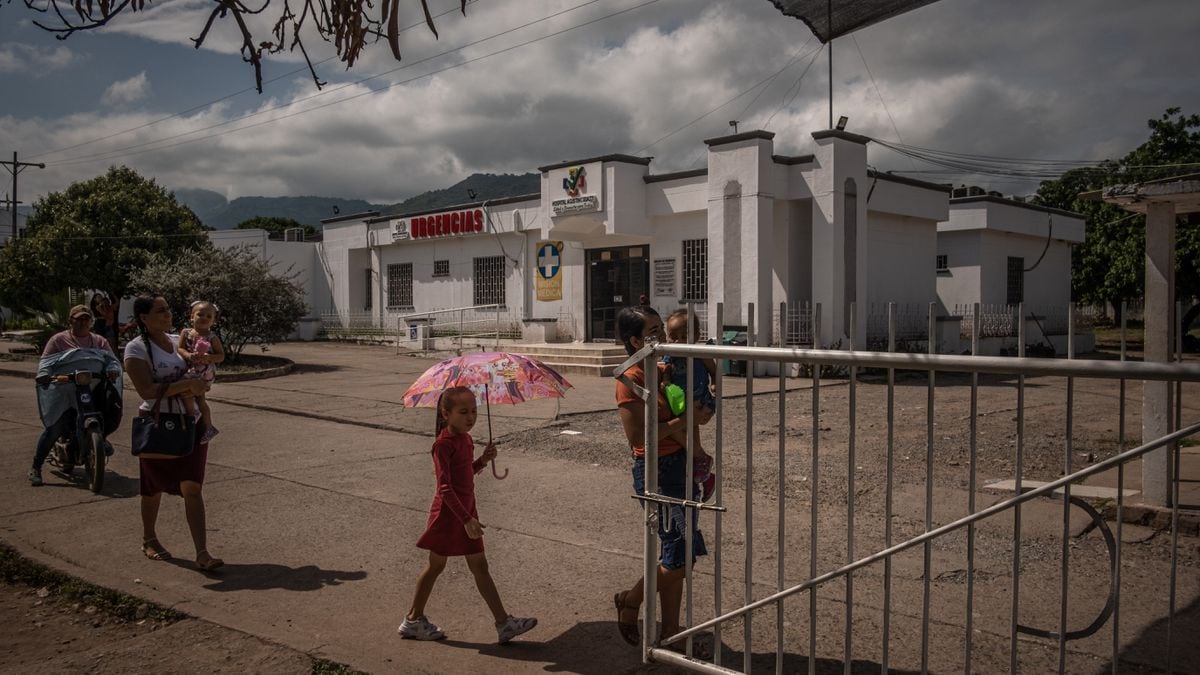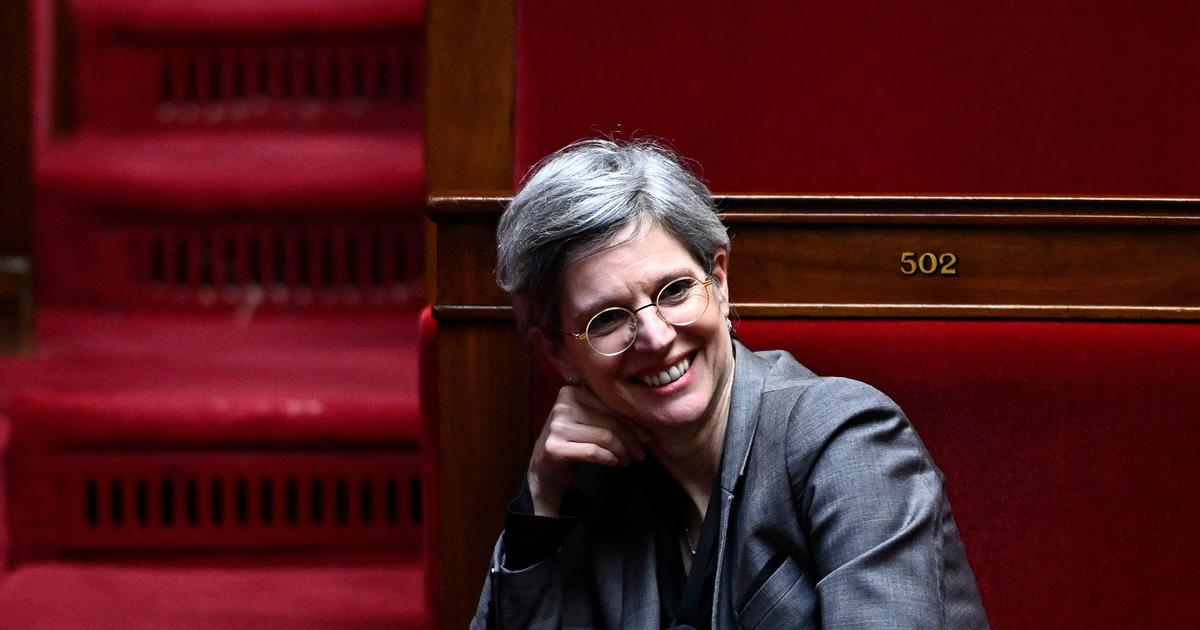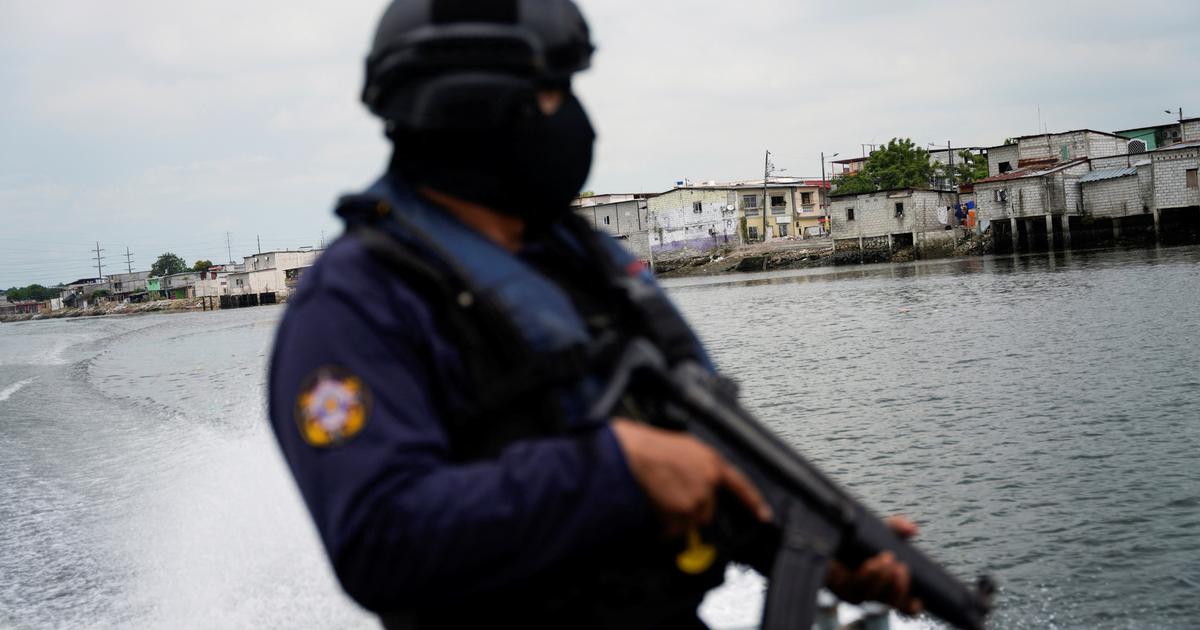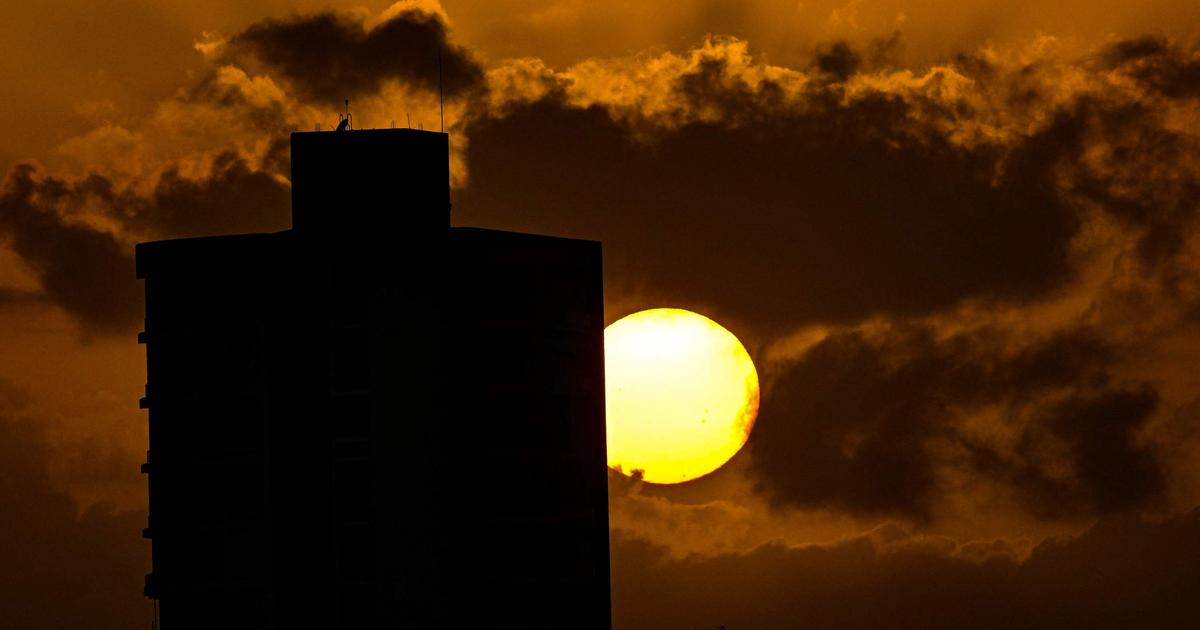Responsible for ensuring the application of the peace agreements between the government of Juan Manuel Santos and the Farc guerrillas signed in 2016, the UN deplored 42 massacres - murder of 3 or more people at the same time - in a report dated October 2, since the start of the year in Colombia.
A toll which could worsen since 13 other events are still under investigation.
In 2019, this figure stood at 36. A 50% increase in killings of human rights defenders between 2018 and 2019 was also noted.
As of October 4, the macabre list of the NGO Indepaz, which collects information from several official entities and other NGOs, amounts to 66 massacres.
All agree on one point: since 2018, the violence has continued to worsen.
For Lina Macias, protection coordinator of the NGO Pares (Peace and Reconciliation Foundation) in Colombia, “after a drop in 2017, the homicide rate rose in 2018, which corresponds to the period of the presidential campaign, before to start a slight decrease during confinement in 2020 ”she confided to our newspaper.
Defenders of the targeted peace agreements
Among the victims of this escalation, human rights activists and leaders of civil society.
According to the UN, 48 of them have been killed since the start of the year.
"If the figure is difficult to establish precisely because of the methodology to define this status, we note a generalization of this phenomenon towards those who promote the peace agreement" assures Lina Macias.
The MOE (mission of the electoral observatory) is also worried about the increase in attacks against women, which can become “a measure of dissuasion in their participation” in decision-making processes.
And warns about the risks that this violence poses to democracy.
This is also the opinion of Rosemary DiCarlo, United Nations Under-Secretary-General for Political Affairs and Peacebuilding, who recently said, four years after the agreement that won the Nobel Peace Prize for Juan Manuel Santos, that “the killings and threats against social leaders, ex-combatants, women and young people constitute a threat to peace”.
Another great challenge taken up by the UN is that of solving these crimes, in a country where investigations in rural areas are slowed down for lack of resources and due to faulty infrastructure.
Drug trafficking, mining and large landowners
The NGO Pares assures the Parisian, "the sources of this violence are to be sought among groups who do not want peace agreements to be implemented on the ground and contribute to their sabotage".
Redistribution of land, substitution of coca crops, land reform affect the interests of all groups living off drug trafficking, mining and large landowners.
Gustavo Petro, candidate in the second round of the presidential election which saw the victory of Ivan Duque in 2018, expressed Monday (October 5th) to European parliamentarians his support for an amendment calling for a partial suspension of the trade agreement between the Union European Union and Colombia, in particular with "the economic sectors that profit from the assassinations and forced displacement of the population, such as those in the production of palm oil and bananas" under the democracy and rights clause of man.
Newsletter - Most of the news
Every morning, the news seen by Le Parisien
I'm registering
Your email address is collected by Le Parisien to enable you to receive our news and commercial offers.
Learn more
Amendment rejected the next day, but on the side of the Human Colombia party, it was pointed out that 136 MEPs had voted in favor.
"More and more voices are rising in Europe against what is happening in Colombia" assured our newspaper Cielo Rusinque, constitutional lawyer and member of "human Colombia" (left).
An increased presence of illegal armed groups
According to local observers, far from weakening it, the pandemic would have increased the presence of various illegal armed groups fighting over the place left free by the FARCs in areas where the lack of public infrastructure is combined with an illicit economy.
230 ex-Farc combatants were assassinated, and around 20 others disappeared.
In a statement on Tuesday, October 6, Ivan Duque, the incumbent president, attributed "78% of these murders to dissident armed groups of the Farc, the ELN (
Editor's note: National Liberation Army
), the Gulf clan (
Editor's note. drug traffickers heirs to paramilitaries
) ”adding that“ behind this violence are also activities linked to narcoterrorism ”.
Contacted by our newspaper, Alirio Morales, former front leader of the Farc, said he had lost eleven “comrades” from his group since their demobilization at the end of 2016 in the Cauca department in the southwest.
They are now only about thirty in the camp.
“This year Alexandre, Sebastian and Cristian were killed because they were demobilized.
Just yesterday, a car in the collective protection system was strafed.
But there are also these social leaders, peasants, human rights defenders, Afros, Indigenous people… ”This former leader of a front in the center of the country no longer really believes in the implementation of peace agreements.
Police and military violence
To this is added a context of police and army violence.
The rape of a 12-year-old minor from an indigenous community in June by several soldiers particularly shocked the population.
The death of Juliana Giraldo, shot dead by a soldier on the outskirts of a military roadblock in Cauca, sparked a wave of national outrage.
That of Javier Ordoñez, who had received repeated electric pulse pistol shocks from police in Bogotá while he was on the ground, sparked riots that left between 13 and 19 people dead in September.
The indigenous demonstration announced from October 12 in the south of the country is therefore likely to take place in a tense context.
Former President Álvaro Uribe - for whom a decision on whether or not to continue his house arrest should be taken this Thursday, October 8 - for his part brandishes the specter of "a cultural, ideological and political establishment of socialism" to his evocation.
According to him this
minga
, which claims to be a movement to "defend life, land and peace" would be infiltrated and would rather seek "to influence young people through a distorted representation of history.
"
"The fact of presenting social proposals as political strategies of the left worsens polarization and with it intolerance and hatred" analyzes Lina Macias.
“I believe that we will never know peace,” commented to our newspaper Ludwing Cepeda, who lives in the capital.
“No more than the next generation” laments the 38-year-old philosopher.

